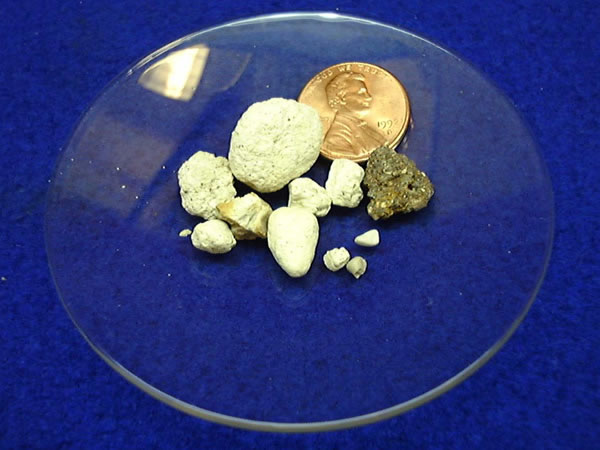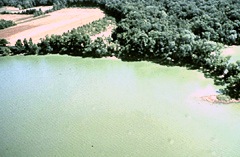This is part of the ideas for Venezuela.
The country is right now a big importer of most of its food. This has to do, among other things, with an extremely overvalued currency, high salaries for extremely low productivity, insecurity for investors as the government confiscates the lands of its enemies (not of its rich Boliburgueses), the food imports the government distributes for very low prices "to fight inflation" and the price controls in general. There are other factors, of course.
Here I will be presenting some ideas about how to improve things once this regime is gone. I will be constantly updating this and the other posts on Ideas for Venezuela. As I have nothing to do with agriculture (well, my grandparents were poor farmers and my dad was one as a young boy), I count on the help of others. So: if you have an idea, share it!
The country is right now a big importer of most of its food. This has to do, among other things, with an extremely overvalued currency, high salaries for extremely low productivity, insecurity for investors as the government confiscates the lands of its enemies (not of its rich Boliburgueses), the food imports the government distributes for very low prices "to fight inflation" and the price controls in general. There are other factors, of course.
Here I will be presenting some ideas about how to improve things once this regime is gone. I will be constantly updating this and the other posts on Ideas for Venezuela. As I have nothing to do with agriculture (well, my grandparents were poor farmers and my dad was one as a young boy), I count on the help of others. So: if you have an idea, share it!
- Start a comprehensive registration of all land properties in every municipality of Venezuela and make the available information online: you - I mean every Venezuelan - go to a site, you choose the municipality and you get the information about who owns or claims ownership of what land larger than 2 hectares. I will be expanding this topic very soon. The Boliburguesía and the Ancien Regime won't like this. Norwegians do that and many others as well. Here you can see (in Norwegian, sorry) the site of the Norwegian Mapping Authority, a governmental organization responsible not just for mapping but for the record of who owns the land. The Venezuelan government should make every municipality responsible to count who owns (or initially who claims to own) what in Venezuela. The technology is available. A lot of people are going to oppose this but we need transparency if we are ever going to stop being an underdeveloped country. Right now if you want to investigate property rights in Venezuela, you have to go to local registries where everything is in paper...in boxes, in folders, in absolute chaos or nowhere...and you have to beg or pay your local authorities to give you a glimpse on that.

Who owns what land of the 769km2 that make Alberto Arvelo Torrealba municipality (the place where Hugo comes from)? Let's register it, let's everyone check...there and in every other municipality.
- Tax legal landowners accordingly, but give them security they won't be invaded.
- Define what areas in densely populated regions should be reserved for agricultural purposes: This is actually already in Venezuela's law but nobody pays attention to it. Most of the best lands for agriculture are located among the largest cities and urban agglomerations. In Carabobo, for instance, lands south of Valencia are being used for building shanty towns, for big haciendas (specially for the boliburguesía now)...in most other municipalities the areas that once produced a lot of food for the region are now just more and more urbanizations.
- Make phosphate deposits available to improve possible farmland: Venezuela has the potential to be a great agricultural country, but at present much of the otherwise suitable farmland is missing important elements, mostly phosphate. The Llanos are a good example of this, very deficient in phosphate and hence not good grazing lands or croplands. Bring the phosphate to the Llanos! (Big thanks to Astera, this is his idea and most of his words)

Get that phosphate to the right spot and you will get more than a dime's worth!
- Keep an eye on possible pollution sources from those phosphates and other agricultural products: if we want agriculture to be sustainable and do not affect our delicate environment, we need open controls that everyone can verify about phosphate levels in rivers (Orinoco, etc) and otherwise.

We don't want the Orinoco to be polluted as the Potomac or as anything else.


Here I put a comment Astera wrote in the index page of Ideas for Venezuela.
ReplyDelete----------------------------
Hi Kepler-
Your points are well taken. My focus is very much ecological, working with natural systems and processes.
Briefly, if any significant amount of nitrates, phosphates, or other fertility amendments are being lost from the land, then something is being done wrong. They need to be used in amounts and applied in ways such that they are not lost. Loss is waste. More is not better.
At present, Nitrogen fertilizers are extremely overused, especially in Venezuela. A properly functioning agricultural ecosystem needs little or no input of Nitrogen; natural bacteria fix Nitrogen from the air.
Phosphate (Phosphorus)must be brought in if it's not present in the soil. That is expensive and labor intensive and it would be foolish to waste any of that effort.
If you can spare the time, please take a look at chapter one of my book The Ideal Soil to get an idea of the concepts I'm working with. Here's the url:
http://www.soilminerals.com/TIS_Ch1.htm
Kepler:
ReplyDeleteYour ideas are great, but the FIRST item needed is "security" of land ownership. Many years agi I asked a now forgotten agricultural expert "why the USSR had to import grain when Russia was an importer" His answer was classic: "Ivan Ivanovitch Ivanoff won't get up at 5 AM to milk the state's cow". (Juan de los Calles no se levantan a las 5 de la manana para ordenar la vaca del estado) The same is true in Venezuela. Mexico had its "ejido" system, and the joke was that the only thing successfully raised on an ejido was more ejeditarios.
Ken, I agree.
ReplyDeleteI should perhaps organize better those ideas. I did put something about ownership, somewhere else in the Ideas links as well. I am just short of time. I will try to organize things better in the following weeks.
Venezuela's rights of land are a real mess.
So we need firstly to:
1) register what the different claims for land everywhere are and make it all transparent: people should be able to check it for every municipio. Most cases will be dubious, conflicting, etc
2) very fast guarantee those cases where property is clear BUT tax those lands. Right now there are people in Venezuela, Boliburgueses and not, who have real fiefdoms that produce a fortune and they do not give a penny for that.
3) start solving property rights for the conflicting, incomplete cases and protect them.
And thanks for commenting. Feel free to look at other ideas and if you have one in some topic, it would be nice if you can share them.
ReplyDeleteI will be translating little by little all kinds of ideas and hopefully someone in Venezuela will start to pay attention.
Kepler
Sept 6 2009
ReplyDeleteHi Kepler-
I'm going to put a few more comments here that aren't necessarily about agriculture, but it all ties together.
I agree that it's a good idea to have all property ownership cataloged in a transparent manner and open to everyone, but I'm not convinced that taxing anything is a good answer. All I've ever seen taxes do is grow the government. I do not think a person's home should be taxed, ever. There are plenty of excise taxes and use taxes that can be implemented to pay for roads and infrastructure. When the government gets it's hands on tax money, how much of it goes back to the people and community anyway? Maybe 10%? The rest pays the salaries of a bloated bureaucracy and politicians.
Along that line, how's this for a campaign slogan?
90% of all net profit from PDVSA will be paid directly to the people. Each citizen of legal age will get a cheque from PDVSA every three months, tax free.
Do you think people would vote for that? I do.
I ran across some very interesting organizational ideas today, new to me but I think they would work well, even in Venezuela. The concept is called Dynamic Self Governance or sociocracy. Check out these links when you get a chance:
http://www.beyonddemocracythefilm.com/more-info
http://www.governancealive.com/Links/CreativeForcesOfSelfOrganization-Compact.pdf
Hi, Astera. Thanks for the ideas.
ReplyDeleteI will take a look at the links later this week.
As for the slogan: it sounds good, but I think we would need to do the maths all the way through.
In any case: we need to have Venezuelan-proof mechanisms for ensuring transparency in tax use.
I am not sure about tax on houses, but I am for taxing big extensions of land.
This would also make people use that land and not just keep them for riding horses, specially when resources become more scant.
I have talked to some people in Venezuela who have large extensions lands (not that I know many) and they tell me: no problem with paying reasonable taxes on that, but only as long as we have security.
There are several issues: we need by all means to set up a transparent system where everybody knows what is done with every cent. In this digital age I think that is feasible.
I would use taxes on large extensions (not small grounds) in
very specific projects for local development.
I have seen the use of taxes in Europe. It is far from optimal, there are many cases in which taxes are wasted, too high, but general I am fine. I know this is a US-Europe divide (there are also divisions here and there).
I am happy with our health service in Flanders and what I have seen in other Northern European countries and I am definitely happy for the primary and secondary schools in Flanders and what I have seen in other countries in Europe. They are top.
http://en.wikipedia.org/wiki/Programme_for_International_Student_Assessment
I think we can learn a lot from the US, like how universities are managed or businesses set, but as for free and good basic school: I rather take this. And to finance this we need taxes.
See the discussion about the health care system in the US. I have seen x-times charts that show how cancer survival rates in the US are higher than in Europe:
ReplyDeletehttp://www.telegraph.co.uk/news/uknews/1560849/UK-cancer-survival-rate-lowest-in-Europe.html
And yet people who use those stats do not want to show the life expectancy rates, the child mortality or many other things.
Again here we need to find out why some countries are doing better in some things and how we can get an optimal value for any given country.
On the long run, it all depends on how transparent the system is and how well educated the people using that system are (so that they can control when things go wrong).